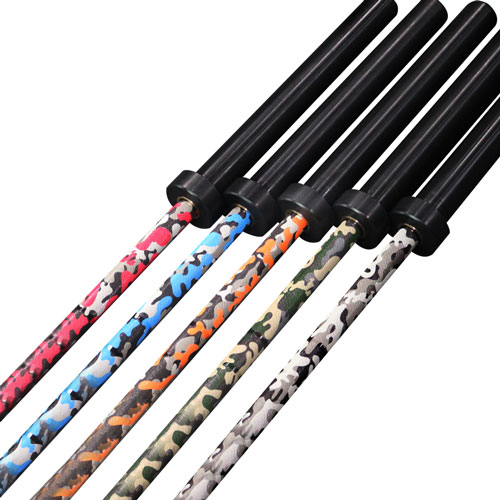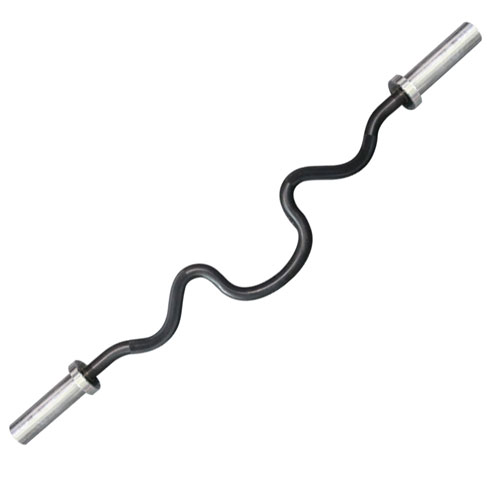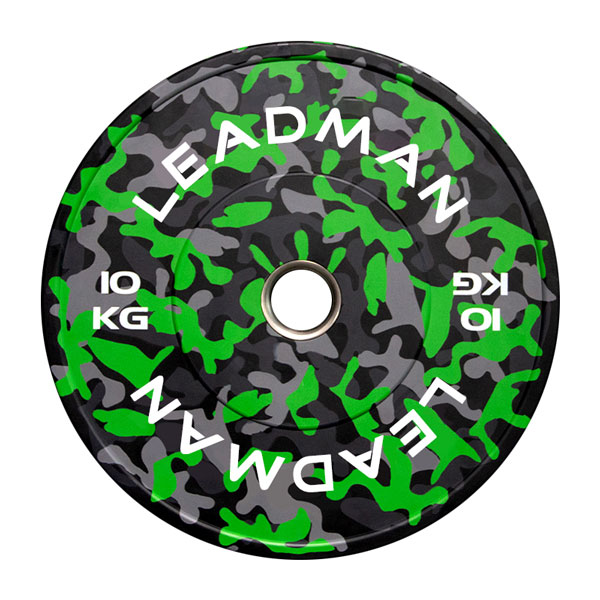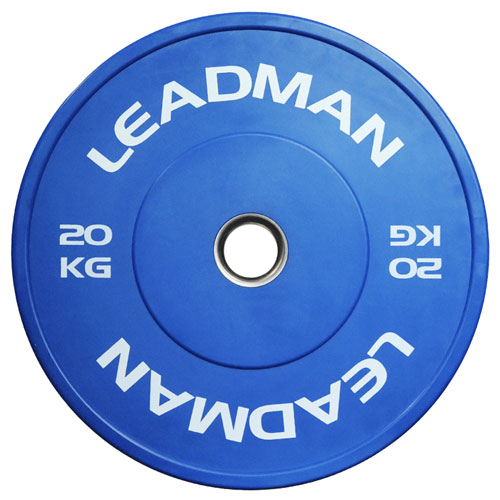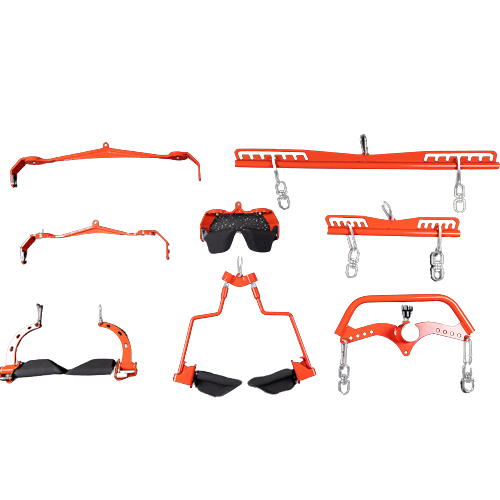How to Choose the Best Weights From China for Your Gym
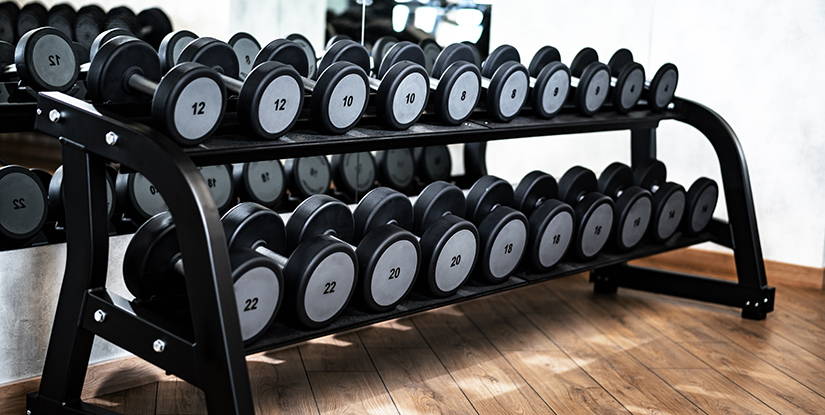
Choosing the right weights for your gym is essential for providing your members with a safe and effective workout experience. With a wide variety of fitness equipment available from China, it's important to carefully consider your options to ensure you make the best decision for your facility. This comprehensive guide will walk you through the key factors to consider when selecting weights, helping you choose the weights that best meet your needs and budget.
Types of Weights Available
There are several types of lifting gear available, each with its own unique characteristics and benefits. Here's a breakdown of the most common types:
1. Barbells
- Standard Barbells: These barbells have a diameter of 25mm and are designed for use with Olympic-style plates.
- Powerlifting Barbells: These barbells have a thicker diameter of 29mm and are specifically designed for powerlifting exercises.
- Curl Barbells: These barbells are shorter and have a curved design, making them ideal for bicep curls and other isolated exercises.
2. Dumbbells
- Fixed Weight Dumbbells: These dumbbells have a fixed weight that cannot be changed. They are available in a wide range of fitness equipment to accommodate different fitness levels.
- Adjustable Dumbbells: These dumbbells allow you to adjust the weight with a simple twist or lever mechanism, providing versatility and space-saving convenience.
- Kettlebells: These unique weights have an offset handle and are used for dynamic and functional exercises.
3. Plates
- Bumper Plates: These plates are made of rubber and have a thick, durable construction designed to withstand repeated drops and impacts.
- Iron Plates: These plates are made of solid iron and are less expensive than bumper plates.
- Fractional Plates: These plates come in smaller lifting gear, allowing for precise weight adjustments.
Material Considerations: Iron, Steel, Rubber
The material used to make the weights can have a significant impact on their quality, durability, and safety. Here's a comparison of the most common materials:
1. Iron
- Iron weights are durable and economical, making them a popular choice for commercial gyms.
- They are not as resistant to corrosion as other materials, so it's important to keep them dry and protected from rust.
2. Steel
- Steel weights are more corrosion-resistant than iron weights, making them an excellent choice for outdoor use or high-humidity environments.
- They are more expensive than iron weights, but offer increased durability and longevity.
3. Rubber
- Rubber weights, such as bumper plates, are designed to withstand impacts and protect flooring.
- They are more expensive than iron or steel weights, but offer superior sound dampening and safety features.
Weight Range and Capacity
The weight range and capacity of the weights you choose will depend on the size and clientele of your gym. Consider the following:
- Minimum and Maximum Weights: Determine the minimum and maximum weights you need for your members' fitness levels and training programs.
- Increment Size: Select weights that have appropriate increment sizes to accommodate gradual weight progression.
- Loading Capacity: Calculate the weight capacity of your racks and benches to ensure they can safely support the desired weight load.
Quality Control and Certification
To ensure the safety and durability of the weights you choose, it's crucial to consider their quality control and certification. Look for weights that:
- Meet Industry Standards: Ensure compliance with internationally recognized standards, such as ISO 9001 or EN 1090, through thorough testing and certification processes. This ensures the highest quality and safety for your gym equipment.
- Have Third-Party Inspections: Be inspected by reputable organizations to verify their quality and safety.
- Provide Warranties: Offer a warranty to protect your investment and ensure a level of quality.
Manufacturer Reputation and Experience
The reputation and experience of the manufacturer can be a key indicator of the quality of the weights. Consider the following:
- Industry Recognition: Check if the manufacturer is well-known and respected in the fitness industry.
- Customer Feedback: Read reviews and testimonials from other gym owners who have used their weights.
- Manufacturing Process: Inquire about their manufacturing processes and quality control measures to ensure transparency and reliability.
Cost and Budget
The cost of the weights is an important factor to consider, especially when purchasing for a commercial gym. Here are some tips for managing your budget:
- Compare Prices: Get quotes from multiple manufacturers to compare prices and find the best value for your money.
- Consider Used Equipment: Explore the option of purchasing used weights to save money, but ensure they are in good condition and certified.
- Negotiate Bulk Purchases: If possible, negotiate a discount for bulk purchases.
Delivery Time and Shipping Options
The delivery time and shipping options can impact your gym's operation. Factor in the following:
- Production Time: Inquire about the manufacturer's production time to estimate when the weights will be ready.
- Shipping Methods: Select a shipping method that fits your budget and timeline, such as air freight, sea freight, or express delivery.
- Customs Clearance: Be aware of any customs regulations and fees that may apply when importing weights from China.
Local Import Regulations
Importing weights from China may require you to follow certain regulations in your country or region. Here's what to consider:
- Import License: Determine if you need a special license or permit to import weights.
- Customs Duty: Be prepared for customs duty or taxes on the imported weights.
- Local Regulations: Check if there are any specific regulations or safety standards that apply to the weights in your area.
Warehousing and Storage
Proper warehousing and storage are essential to ensure the longevity of your weights. Consider the following:
- Storage Space: Allocate sufficient storage space to accommodate the weights without overcrowding or hindering accessibility.
- Temperature and Humidity Control: Maintain an optimal temperature and humidity level in the storage area to prevent corrosion and damage.
- Organization: Organize the weights efficiently to facilitate easy access and inventory management.
Conclusion
Choosing the right weights from China for your gym requires careful consideration of various factors. By understanding the different types of weights, materials, weight ranges, quality certifications, manufacturer reputation, cost, delivery options, import regulations, and storage requirements, you can make an informed decision that meets the needs of your facility and ensures a safe and effective workout experience for your members.
FAQ about Choosing Weights for Your Gym
1. What are the benefits of using rubber bumper plates?
Rubber bumper plates are designed to withstand repeated drops and impacts, making them ideal for high-intensity workouts. They also protect your gym flooring and reduce noise, providing a safer and more pleasant workout environment.
2. How do I choose the right weight range for my gym?
Consider the fitness levels of your members and the types of exercises they will be performing. Ensure you have a range of weights that can accommodate both beginners and advanced lifters, with appropriate increments for gradual progression.
3. What should I look for in a weight manufacturer?
Look for manufacturers with a strong reputation, industry certifications, and positive customer feedback. Ensure they have robust quality control processes and offer warranties on their products.
4. How can I reduce costs when purchasing weights?
Consider purchasing in bulk to negotiate discounts, explore used equipment options, and compare prices from multiple suppliers. Additionally, working with a manufacturer like Leadman Fitness, which has vertical integration, can help reduce costs.
5. What are the advantages of Leadman Fitness's vertical integration?
Leadman Fitness, known for its vertical integration, owns four specialized factories. For more details on our manufacturing capabilities, visit our company page. This vertical integration ensures high-quality production, cost efficiency, and the ability to offer customized solutions to meet specific customer needs.
6. How does Leadman Fitness ensure product quality?
Leadman Fitness has a dedicated quality control laboratory and adheres to international standards such as ISO 9001. Each product undergoes rigorous testing to ensure it meets the highest quality and safety standards.
7. What customization options does Leadman Fitness offer?
Leadman Fitness provides OEM and ODM services, allowing customers to customize products according to their specific requirements. This includes design, branding, and performance optimization to meet unique business needs.
8. How does Leadman Fitness support international customers?
Leadman Fitness has a strong presence in international markets, with 75.14% of its revenue coming from overseas sales in 2023. The company offers comprehensive support, including logistics, customs clearance, and after-sales service, to ensure a smooth experience for international customers.

